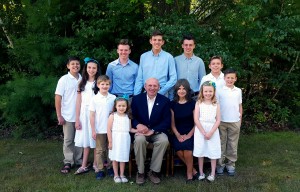By Rev. Doug Forbes
Words are very powerful tools that should be used properly. We can use words that are helpful and kind, or we can use words that attack and hurt. Words can also be used to help or heal. We want to encourage our children to use kind words that will help people and build them up.
For Kind Words you need: Bibles, Bible concordances, a full tube of toothpaste, a plate and baby wipes.
Gather the children in a circle and proceed to empty a tube of toothpaste onto a plate. Ask your students if they can put the toothpaste back into the tube and let them attempt to do so. (Afterwards use the baby wipes to clean their hands.)
Explain that harsh words are even harder to take back than putting toothpaste back into the tube. Once the words are out, they’re out. Therefore, we need to be careful what we say and make a practice of saying kind things.
Instruct your students to use their Bibles and concordances to find passages that contain kind words. Allow each child an opportunity to share his or her findings with the group.
Read, “A soft (gentle) answer turns away wrath.” Proverbs 15:1A. Explain that even in a confrontational situation we can avoid an argument or fight by not responding in anger. Instead, we should respond in a gentle, kind manner.
Ask your students to turn to I Peter 1:5-7. And ask for three volunteers to each read a verse. Explain that life is more enjoyable when we fill it with kindness, self-control, brotherly kindness and love.
Explain to your young people that none of us are perfect and most of us become angry from time to time. When we do say unkind things we can simply say that we’re sorry and will try to do better. We can also tell God that we’re sorry. Remind the young people that God loves us and that He is always ready to help and forgive us. Ephesians 4:32 tells us to “Be kind and compassionate to one another, forgiving each other, just as in Christ God forgave you.”








